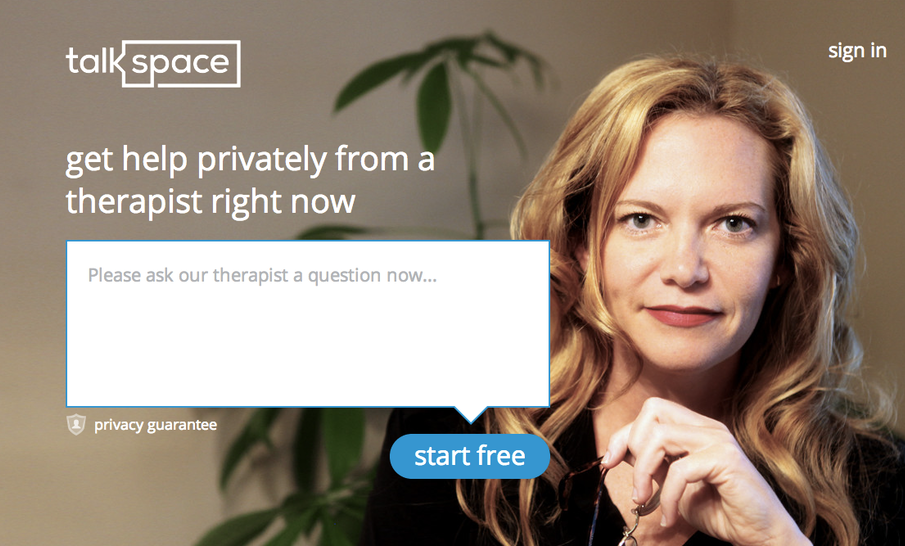Internal Talkspace Memo Illustrates Challenge of Delivering Virtual Mental Health Services in 50 States

KEY POINTS
- Online therapy company Talkspace sent a memo to therapists asking if they wished to sign up with a group to operate in many states, and provided to provide indemnification for rejected insurance claims and “fund any legal appearances before state regulatory boards.”
- The business is facing record needs throughout the coronavirus pandemic.
- However legal specialists alert that therapists who take Talkspace’s deal might end up in a problem.
Talkspace, an online therapy supplier, is seeing an extraordinary need for its service as the coronavirus pandemic drags on, affecting the mental health of countless Americans. However, it deals with a big difficulty ahead: Employing enough therapists licensed in all 50 states to deal with a growing swimming pool of clients.
Its option? To ask its suppliers to continue seeing clients out-of-state– even after emergency situation steps expire– and use to pay certain legal costs if they get in difficulty for doing so. But working across state lines without accreditation might put service providers in a risky area, legal specialists say.
Previously this year, the federal government passed emergency waivers that raised constraints on psychological health specialists, allowing them to deal with clients online and in states where they’re not accredited. These measures, however, are created to end at some unidentified date– the exact expiration date will differ by area, based on when regional officials think the pandemic has declined enough.
To navigate this uncertainty, Talkspace in Might began sending a memo to therapists asking if they desired to join a group ready to “work in numerous states, depending upon only need and require versus the mutable timing of the real executive orders.”
The memo does not clearly ask suppliers to work throughout state lines where they’re not licensed. But it does use aid for therapists who contravene of insurer or state regulators.
“Please understand that Talkspace will offer indemnification for any claim your insurance coverage company denies due to state border issues or customer state of origin,” it reads. “We will likewise money any legal appearances before state regulatory boards.”
By ramification, Talkspace is also using to help its service providers get licensed in Florida. The letter refers particularly to the “Florida model,” a program that existed before the pandemic that provides a fairly fast and easy registration procedure for providers to deliver care in Florida without being licensed. But Talkspace does not state whether it will help companies get licensed in a lot of other states, a procedure that could take months and expense thousands of dollars.
“Talkspace will constantly follow federal, state, and regional guidelines as needed,” said CEO Oren Frank in a statement. Frank stated the pandemic has driven need greater while likewise making it more difficult to get in-person visits.
“I feel strongly that CMS [Centers for Medicare & & Medicaid Providers] must reconsider limitations around tele-mental health that can prevent individuals from getting the help they want and require.”

An appeal has grown during the pandemic
Talkspace got its start in 2012 after Oren and his partner Roni had an experience with couples’ therapy that changed their marital relationship, and they searched for a way to bring this type of insight to a wider audience. The company has considering that gets more than $100 million in venture funding from investors such as Norwest, Transformation, and Spark Capital.
Talkspace users develop an account and get matched with therapists, who work for the business as professionals. For $260 a month, a user can send out a therapist a message at any time, and full video sessions are likewise offered.
The service has seen new demand throughout the pandemic, as countless Americans battle with extended lockdowns and other major life disruptions. A Kaiser Family Structure survey discovered that over 30 percent of grownups are now reporting signs constant with an anxiety or depressive disorder, up from 11 percent in 2019.
SensorTower, a business that tracks mobile app use, says that Talkspace saw 38,000 installs in September from the U.S. variations of Apple’s App Store and Google Play. That’s a boost of 23% year-over-year and up 46% from February, the month before the pandemic started.
A number of these users are moving in between states thanks to flexible work policies during the pandemic. Now, Talkspace is on the hook to find out how to stay up to date with rising demand and this increasingly mobile userbase.
Nathaniel Lacktman, a partner at Foley & & Lardner focused on health innovation, alerts that therapists who take up Talkspace’s deal might wind up in a problem. “They could get something on their record that follows them across the various state medical boards, and even worse, unlicensed practice is a criminal activity in a number of states.”
“This is an enterprise-wide aggressive growth play in lieu of getting licensure.” He included, “When a business uses the waivers to blitz scale its patient base, it requires a plan for what to do when those waivers end.”
Making matters harder, there’s an extensive scarcity of psychological health specialists. The U.S. Department of Health and Person Providers is approximating that mental health and compound utilize social employees will have shortages of more than 10,000 employees.
Other businesses in the space, such as Ginger, which is backed with $120 million from investors, have approached the problem by causing whole teams entirely devoted to helping therapists and psychiatrists apply for and preserve licenses in other states. Russell Glass, the company’s CEO, described it as “a huge pain.”
Therapist Sara Feldman, who is based in California, states she uses usage Talkspace because of the benefit, and the access to clients who might not otherwise seek care personally. Feldman was not one of the service providers who received the memo, so did not talk about it.
However, Feldman notes that the licensing rules can make life especially challenging throughout Covid-19. Some of her clients have gone on getaway or moved out of state, and it takes some time and research study to figure out if she can still offer care.
“There are so numerous therapists who are starting to embrace technology, however, it’s a steep learning curve in comprehending the guidelines and laws around it,” she stated.






